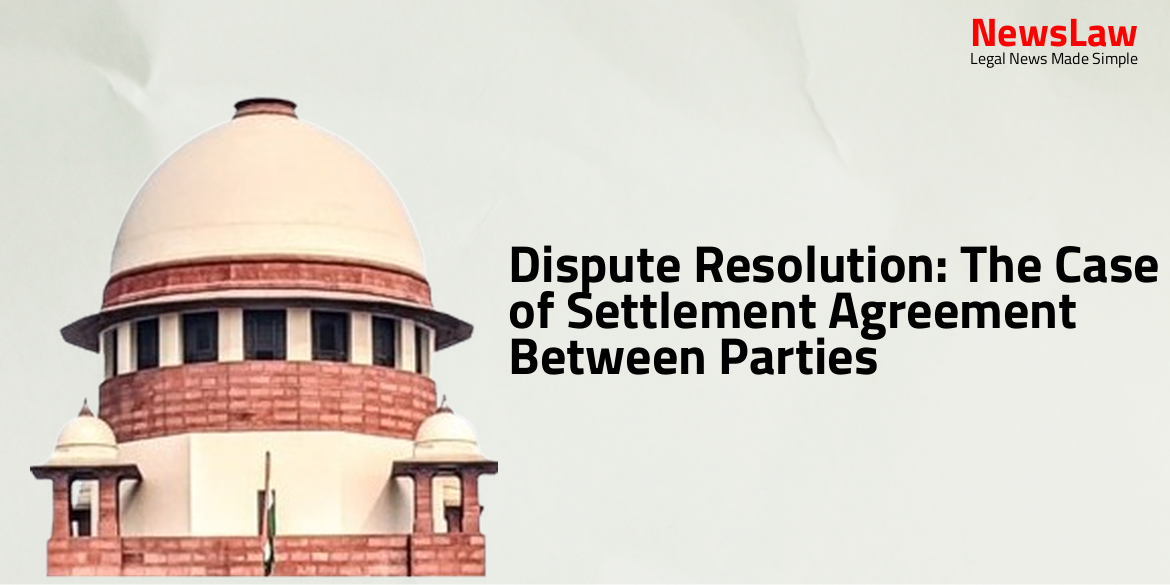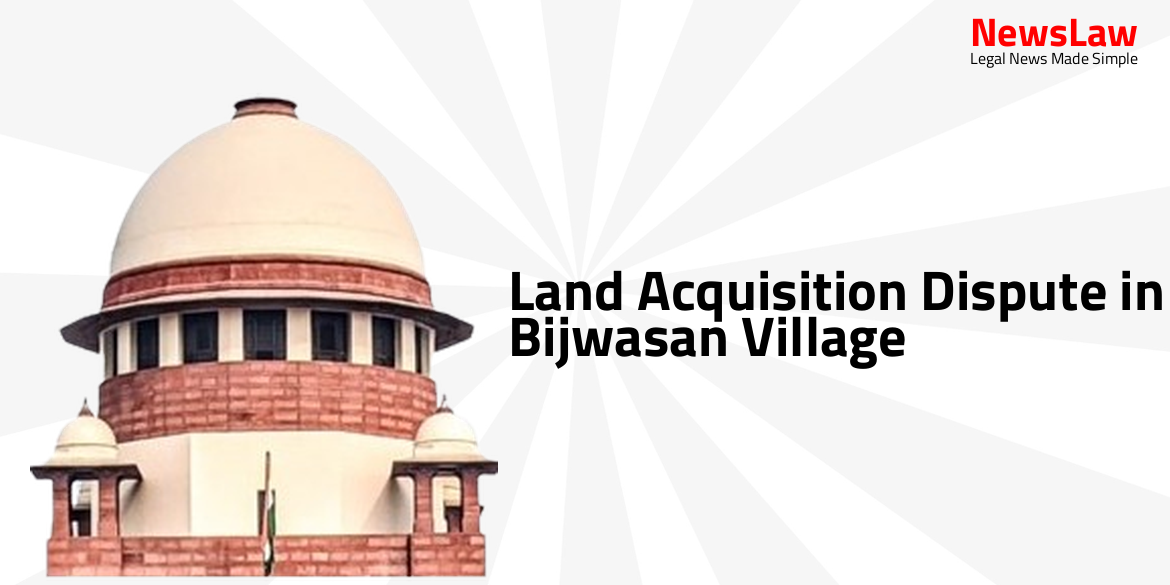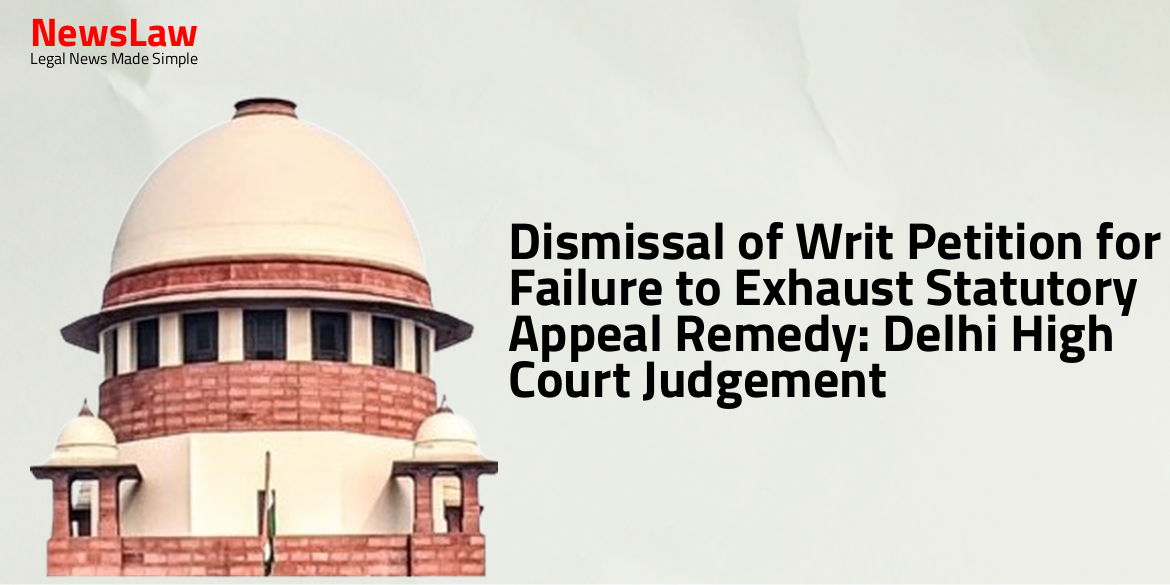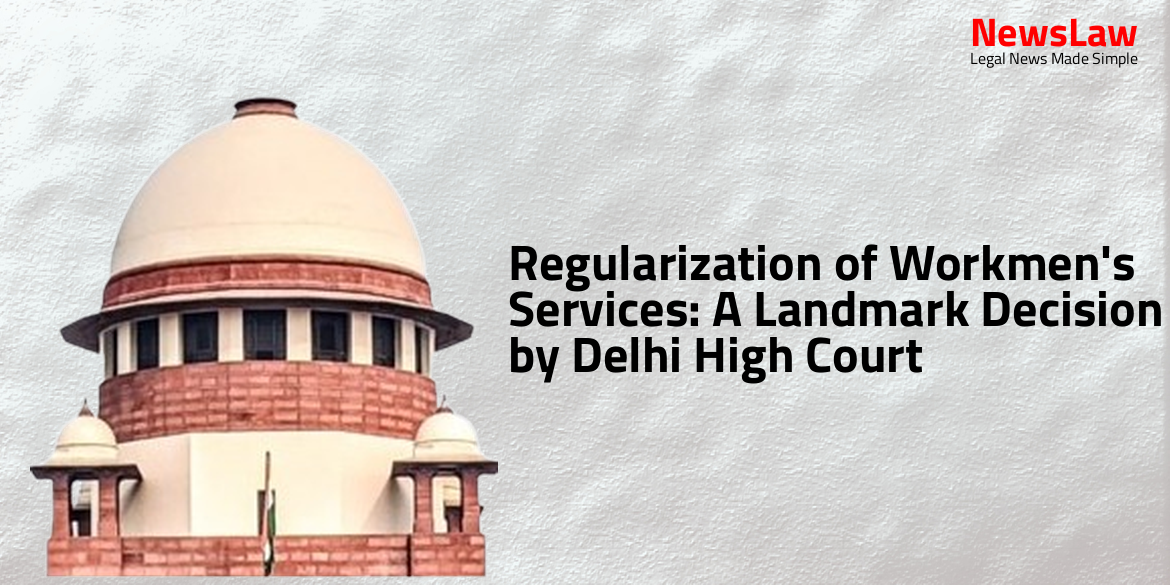In a recent Delhi High Court judgment, the case of settlement agreement between the parties is analyzed for dispute resolution. The court examined the implications of the arbitration clause in the settlement agreement, shedding light on the legal intricacies involved. Stay informed about the intricacies of this case involving the resolution of disputes between the parties.
Facts
- Petitioner is engaged in manufacturing corrugated boxes and cartons.
- Outstanding due of Rs. 36,40,006/- was claimed by the Petitioner.
- Legal demand notice dated 01.06.2023 was issued by the Petitioner.
- Various invoices were issued by the Petitioner for the supplied goods.
- Respondent contested the petition, claiming disputes were not subject to any arbitration agreement.
- Respondent placed several orders for corrugated boxes with the Petitioner.
Arguments
- Petitioner settled the dispute with the Respondent based on coercion and false information.
- Respondent claimed bad quality of goods supplied by the Petitioner, leading to return of goods worth Rs. 10,23,117/-.
- Settlement agreement reached after discussions on quality issues, with Respondent paying Rs. 12,51,000/- to the Petitioner.
- Petitioner invoked arbitration after settlement, Respondent argued lack of arbitration clause in settlement agreement.
- Petitioner claimed outstanding amount of Rs. 36,40,006/-, Respondent raised objections on unstamped invoices.
- Legal demand notice sent by Petitioner was acknowledged by Respondent, denying existence of any arbitration agreement.
- Principles of novation of agreement and operation of arbitration clause discussed by counsels.
- Counsel for Petitioner argued that settlement was void due to misrepresentation by Respondent.
- Arbitration invoked after dispute arose between parties, despite settlement agreement.
- Learned counsel for the respondent did not focus on the absence of an arbitration agreement between the parties.
- The main argument of the respondent’s counsel is that the settlement agreement dated 12.06.2023 renders the dispute non-arbitrable.
- The respondent’s counsel contends that the settlement agreement does not include any provision for arbitration.
Analysis
- Existence of arbitration agreement can be inferred from various documents approved and signed by the parties.
- In the absence of a signed agreement, arbitration agreement can be inferred from exchange of emails, letters, telex, telegrams, and other means of telecommunication.
- In OMEGA Finvest LLP Vs. Direct News Private Limited, a petition was filed under Section 11 of the Arbitration and Conciliation Act due to failure to hand over possession of ‘Demised Premises’.
- In Scholar Publishing House Pvt. Ltd. v. Khanna Traders, objections under Section 34 of the Act were addressed regarding the legality and binding nature of an award rendered on a dispute referred to arbitration by the Respondent/Claimant.
- Section 7(4)(c) of the Act allows an arbitration agreement to be inferred from the exchange of statements of claim and defence where existence of the agreement is alleged by one party and not denied by the other.
- The Supreme Court in S.N. Prasad v. Monnet Finance Ltd. discussed the inclusion of a guarantor, not a party to the Loan Agreement, in a reference to arbitration based on accepted essential terms.
- The Court emphasized that the arbitration agreement should be in writing, and Section 7(4) should not always require a signed agreement.
- In Trimex International (supra), the Court recognized the importance of examining voluminous communications to establish the acceptance of basic and essential terms by the involved parties.
- Arbitration clauses printed on invoices may not always be held as valid.
- An arbitration agreement can be inferred through correspondences or objections to arbitration proceedings.
- The words ‘statements of claim and defence’ in Section 7(4) (c) of the Act are not limited to filings before the arbitrator.
- A matter can be referred to arbitration only if there is an arbitrable dispute between the parties.
- The existence of an arbitration agreement can be inferred from parties’ pleadings in a Section 11 petition.
- If a party does not dispute the existence of an arbitration agreement in response to a claim, the agreement is deemed to exist.
- The jurisdiction of the court to refer matters to arbitration is well settled.
- The intention of parties to settle disputes through arbitration is crucial, even if not explicitly signed.
- The failure to hand over possession despite settlement terms can lead to Contempt proceedings.
- Courts often infer arbitration agreements based on parties’ true intentions.
- The true intent of parties is crucial for any agreement.
- The courts may reject an application if there is no clear intent to arbitrate as shown in printed conditions.
- The letter dated 12.06.2023 cannot be considered as novation or settlement of disputes.
- If there is an assertion of an arbitration agreement and no denial by the other party, it is considered as an ‘exchange of statements of claim and defence.’
- In case of doubt, matters should be referred to arbitration as a golden rule.
- The validity of terms with arbitration clauses on invoices is subject to scrutiny.
- The parties must be clear and in agreement for arbitration clauses to be binding and enforceable.
- The consent letter dated 12.06.2023 does not end the arbitrable dispute between the parties.
- The court must look at the prima arbitration to determine the preferred mode of dispute resolution and the clear intent of the parties.
- The document dated 12.06.2023 does not show a clear intent of the parties.
- When considering an application under Section 11 of the Arbitration and Conciliation Act, the court’s jurisdiction is limited to checking the existence of an arbitration agreement, not its validity.
Decision
- The court appointed Mr. Brajesh Kumar Tamber as the Arbitrator to resolve disputes between the parties.
- The disputes from the agreement were referred to the arbitral tribunal.
- The petition was disposed of based on the ‘Terms of Settlement’ agreed upon by the parties.
- An ‘Addendum to the Terms of Settlement’ was signed on 26.02.2020 by the parties.
- Despite this, the original terms were not honored by the respondent, leading to a Contempt petition.
- The petitioner later initiated arbitration under the Delhi International Arbitration Centre (DIAC).
Case Title: M/S DHAWAN BOX SHEET CONTAINERS PVT. LTD. Vs. M/S SHREYANSH HEALTHCARE PVT. LTD. (2024:DHC:4112)
Case Number: ARB.P.-1196/2023



